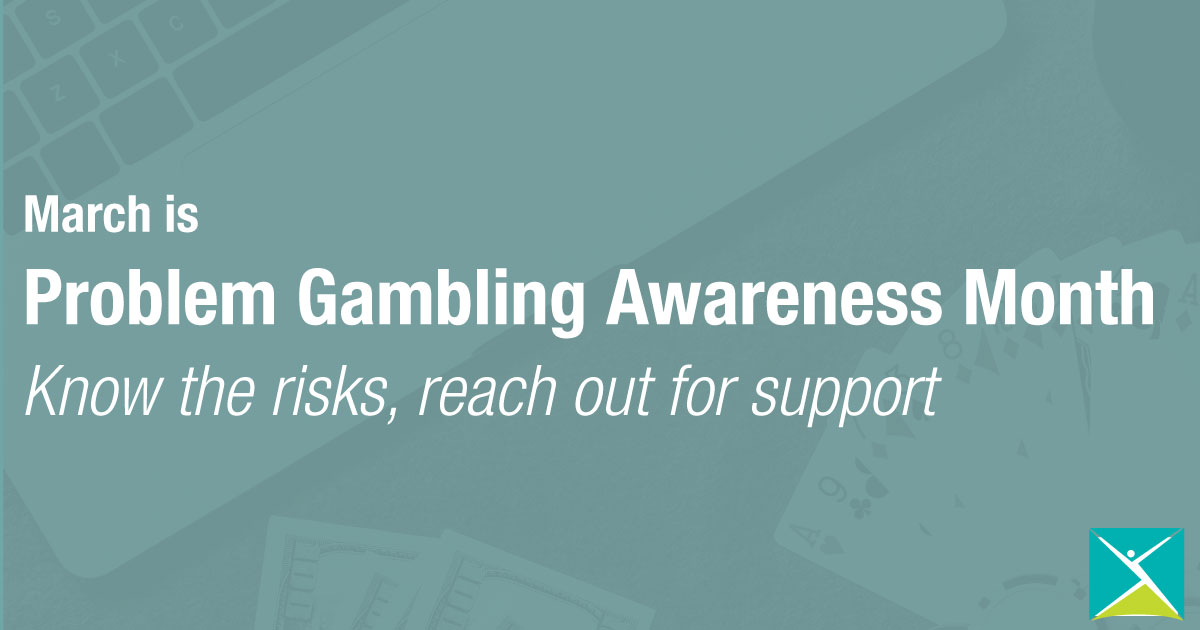March is Problem Gambling Awareness Month, an annual event to increase public awareness of problem gambling and the availability of prevention, treatment and recovery services.
Gambling is a leisure activity that may occur over a continuum, ranging from casual social gambling, with no harm caused, to pathological gambling, with serious harmful consequences for the individual gambling and their loved ones. Gambling becomes a problem when it is done excessively and negatively affects a person’s daily activities, school or work performance, mental health, physical health, interpersonal relationships, and finances.
A recent CMHA Ontario poll found that a third of the Ontario gamblers reported to have been gambling more since the pandemic began. People who experience problems with gambling are found in all age groups, across all income groups and social strata, across all genders and race. For some, the challenges with gambling may occur suddenly, whereas for others, over many years of use.
To help Canadians make informed decisions about their gambling, The Canadian Centre on Substance Use and Addiction (CCSA) have created a set of evidence-informed Lower-Risk Gambling Guidelines. These guidelines will help Canadians make informed decisions about their gambling.
The Lower-Risk Gambling Guidelines are:
- Gamble no more than 1% of household income before tax per month
- Gamble no more than 4 days per month
- Avoid regularly gambling at more than 2 types of games
Learn more about the guidelines at gamblingguidelines.ca.

